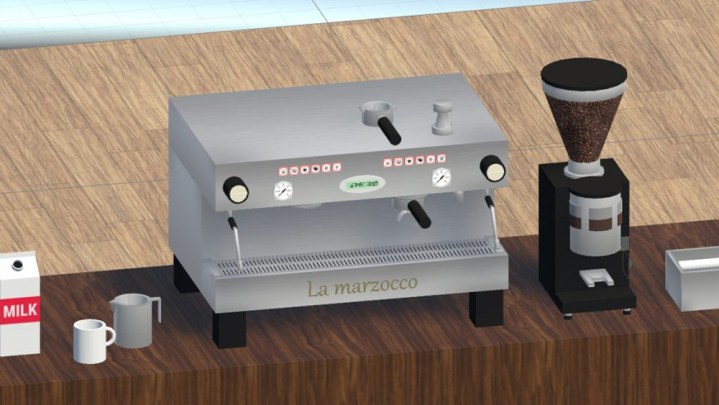
Although since the release of consumer-grade headsets like the HTC Vive and the Oculus Rift, the majority of software released for them could be categorized as games and visual experiences, VR can also be leveraged effectively as an educational tool. Some really early releases hinted at the medium’s potential in that arena and now Google is looking to draw up some hard data on just how effective it can be.
In this test it pitted two groups against one another, charging each with the operation of an espresso machine that none had come across before. The first group was only allowed to watch YouTube videos showing its operation, while the latter was given a virtual copy to play with in HTC Vive-powered virtual reality. As RoadToVR explains, each team was given as much time with their respective training tools as they wanted.
In terms of the speed of learning, video viewers typically watched three run-throughs of the machine’s use before being able to make an espresso that was considered passable. In comparison, the VR testers were able to perform the same task after just two run-throughs of the simulation.
Better yet, the DayDream team found those trained in VR made significantly fewer mistakes during operation than the video trainees.
One of the moderators of the study, Google software engineer Ian MacGillivray, praised both groups but ultimately said that those trained in VR were far more efficient — even if he didn’t much rate the coffee either group produced in their first attempt at being baristas.
While it seems like the virtual familiarity gained through training gave the VR practitioners a leg up in the real world, it should be noted that that familiarity with an unreal espresso machine did present some problems. Despite visual and auditory warnings that some parts of the machine would be exceedingly hot, testers tended to ignore that aspect in VR, and were then in far more danger of burning themselves in the real world.
The tactile feedback of the controller was also not ideal, offering only minor vibrations. In that respect and several others, Google believes much work still needs to be done, but that VR training certainly could act as a very effective tool in the future.



